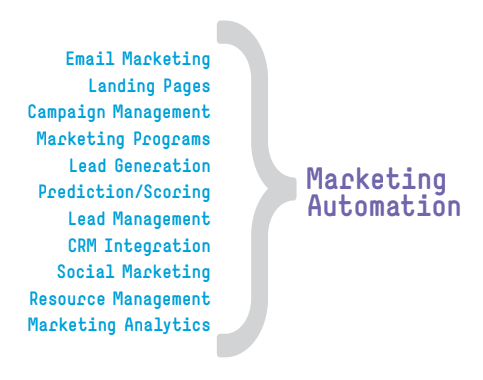The Definitive Guide To: Marketing Automation

Large enterprises have long found value in the technology, but it’s important to point out that marketing automation isn’t just for big companies. In fact, Small and Mid-Sized Businesses (SMBs) make up the largest growing segment in the marketing automation technology space right now. (That’s any company with between $5 and $500 million in annual revenue.) And thousands of companies even smaller than that use marketing automation as well.
Companies across all industries are using it. The early adopters were primarily in “business-to- business” (B2B) industries such as high-tech / software, manufacturing, and business services. But increasingly, companies across all categories –including “business-to-consumer” (B2C) industries such as healthcare, financial services, media and entertainment, and retail – are adopting marketing automation for its real-time, relationship-oriented approach to maintaining and extending customer relationships.

Beyond the time-saving and efficiency benefits of automation, marketing automation enables modern business processes that are essential to any modern marketing department. For B2B companies, this includes lead nurturing, lead scoring, and lead lifecycle management. For B2C companies, it includes cross-sell, up-sell, and retention. And for all companies, it includes marketing ROI analytics.
Retain and extend customer relationships. The marketer’s job is far from finished once someone becomes a customer. For most industries, the real value comes from retaining and deepening the customer relationship over time. This includes selling more of the same product to the customer (up-sell), selling additional products to the customer (cross-sell), as well as customer loyalty and retention. Note that relationship marketing means more than sending a monthly newsletter. You need multiple tracks for each buyer persona and buying stage that “listen” to how the customer behaves, and adjusts accordingly– just like a real-world relationship.




